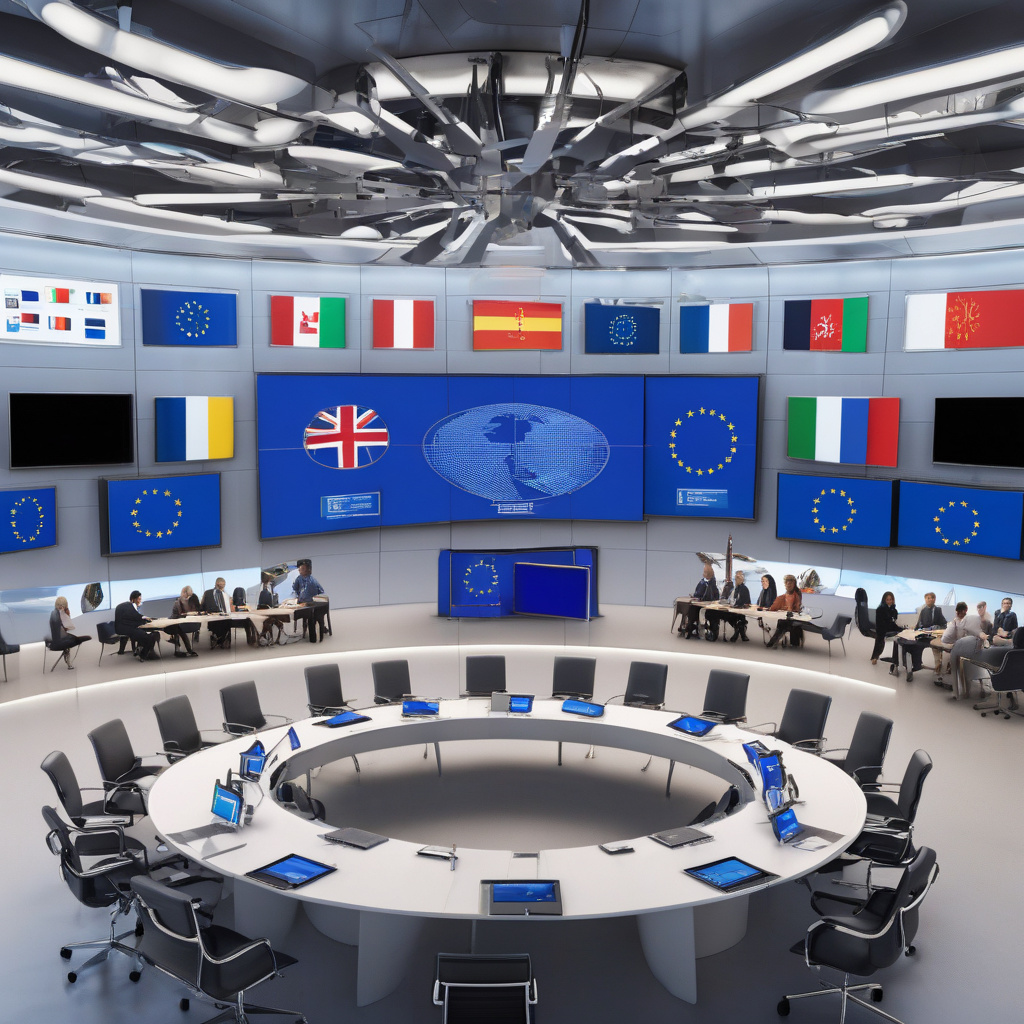EU Takes Lead in Global Digital Strategy: A Blend of Ambition and Values
As the global race for digital dominance accelerates, the European Union is stepping forward with a bold strategy that blends technological ambition with a commitment to democratic values and international cooperation. In a landscape increasingly defined by digital innovation and e-commerce prowess, the EU’s move marks a significant development that is set to shape the future of the digital economy on a global scale.
The EU’s digital strategy is designed to not only enhance the region’s own digital capabilities but also to position itself as a key player in the rapidly evolving digital world. By leveraging its strengths in technology, innovation, and regulation, the EU aims to create a competitive advantage that will not only benefit its member states but also contribute to setting global standards for digital practices.
At the core of the EU’s digital strategy is a focus on fostering a digital single market that is open, fair, and competitive. By breaking down barriers to cross-border online trade, harmonizing digital regulations, and promoting data protection and privacy, the EU aims to create a level playing field that encourages innovation and growth while safeguarding the rights of consumers and businesses alike.
One of the key pillars of the EU’s digital strategy is the promotion of digital innovation and entrepreneurship. By investing in research and development, supporting start-ups and scale-ups, and fostering digital skills and literacy, the EU aims to nurture a vibrant digital ecosystem that drives economic growth and job creation across the region.
Another important aspect of the EU’s digital strategy is its focus on digital infrastructure and connectivity. By investing in high-speed broadband networks, 5G technology, and digital infrastructure projects, the EU aims to ensure that all European citizens and businesses have access to fast, reliable, and secure digital services, regardless of their location.
In addition to enhancing its own digital capabilities, the EU is also committed to promoting global cooperation on digital issues. By engaging with international partners, sharing best practices, and advocating for a rules-based global digital order, the EU aims to shape the future of the digital economy in a way that is inclusive, transparent, and sustainable.
The EU’s digital strategy is not without its challenges, however. In a rapidly changing digital landscape characterized by fierce competition, technological disruption, and regulatory complexity, the EU will need to navigate a complex web of issues to realize its vision of digital leadership. Key challenges include striking the right balance between innovation and regulation, addressing concerns around data privacy and security, and ensuring that digital benefits are shared equitably across society.
Despite these challenges, the EU’s digital strategy represents a significant opportunity for the region to assert its position as a global leader in the digital economy. By combining technological ambition with a commitment to democratic values and international cooperation, the EU is setting a powerful example of how digital innovation can drive economic growth, social progress, and global collaboration in the 21st century.
In conclusion, the EU’s global digital strategy marks a bold and ambitious step towards shaping the future of the digital economy on a global scale. By prioritizing innovation, regulation, and cooperation, the EU is positioning itself as a key player in the digital world, driving economic growth, job creation, and social progress while upholding democratic values and international norms. As the digital landscape continues to evolve, the EU’s strategy offers a roadmap for how countries and regions can harness the power of technology to build a more prosperous, inclusive, and sustainable future.
EU, Global, Digital Strategy, Innovation, Cooperation
